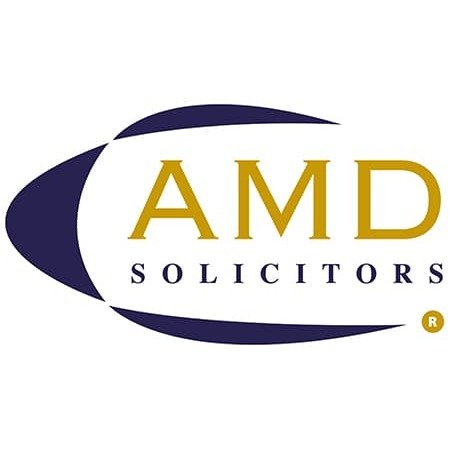Best Trademark Lawyers in Bristol
Share your needs with us, get contacted by law firms.
Free. Takes 2 min.
List of the best lawyers in Bristol, United Kingdom
About Trademark Law in Bristol, United Kingdom:
Trademark law in Bristol, and broadly across the United Kingdom, is designed to protect businesses, brands, logos, slogans and other distinctive signs that differentiate products and services in the market. Governed by the Trade Marks Act 1994 and overseen by the UK Intellectual Property Office, these laws aim to prevent dishonest practices and protect consumers from confusion.
Why You May Need a Lawyer:
Although registering a trademark might seem straightforward, the process can be complicated by the limitations and certain requirements, such as ensuring your trademark is distinct and does not conflict with existing marks. As such, it is pertinent to seek advice from a legal expert to facilitate proper classification, correctly identify your mark, and navigate potential challenges. A lawyer would also be crucial when dealing with allegations of infringement or when you plan to enforce your rights against others.
Local Laws Overview:
Under Bristol's jurisdiction, local laws are consistent with the wider UK law. If a trademark is registered with the UK Intellectual Property Office, it is protected across the country, including Bristol. Trademarks must be unique, able to be graphically represented, and not offensive or deceptive. The Trade Marks Act 1994 stipulates legal action can be taken if your trademark is used without permission, indicating the high level of protection granted to trademarks in the UK.
Frequently Asked Questions:
1. Can I register my trademark myself?
Yes, one can independently apply for trademark registration through the UK Intellectual Property Office. However, due to the complexity of the process and strict criteria, it is advisable to seek professional legal help to ensure successful registration.
2. How long does a UK trademark last?
A registered trademark in the UK lasts 10 years from its registration date. However, it can be renewed indefinitely as long as the renewal fees are paid every 10 years.
3. What can I do if my trademark is infringed?
If you believe your trademark has been infringed, you can take legal action against the infringer. It's advisable to consult a lawyer to help you establish your case.
4. How long does it take to register a trademark in the UK?
Typically, a straightforward application takes about 4 months to process if no objections or oppositions are made against the application.
5. Do I need a UK trademark if I already have an EU trademark?
With UK's exit from the EU, an EU registered trademark no longer covers the UK. Therefore, for protection in the UK, a national UK trademark is required.
Additional Resources:
The UK Intellectual Property Office is a great resource for learning more about trademarks in the UK. Another valuable resource is the Chartered Institute of Trade Mark Attorneys (CITMA), which provides information and support for both legal practitioners and those looking for advice on trademark matters.
Next Steps:
If you're seeking legal assistance with trademark matters in Bristol, start by identifying a local trademark attorney who specializes in intellectual property law. Be prepared to provide all necessary information about your brand, logo, or slogan to help with the smooth running of the registration or dispute resolution process. Keep in mind that the unwillingness to seek legal advice can potentially lead to costly mistakes down the line.
Lawzana helps you find the best lawyers and law firms in Bristol through a curated and pre-screened list of qualified legal professionals. Our platform offers rankings and detailed profiles of attorneys and law firms, allowing you to compare based on practice areas, including Trademark, experience, and client feedback.
Each profile includes a description of the firm's areas of practice, client reviews, team members and partners, year of establishment, spoken languages, office locations, contact information, social media presence, and any published articles or resources. Most firms on our platform speak English and are experienced in both local and international legal matters.
Get a quote from top-rated law firms in Bristol, United Kingdom — quickly, securely, and without unnecessary hassle.
Disclaimer:
The information provided on this page is for general informational purposes only and does not constitute legal advice. While we strive to ensure the accuracy and relevance of the content, legal information may change over time, and interpretations of the law can vary. You should always consult with a qualified legal professional for advice specific to your situation.
We disclaim all liability for actions taken or not taken based on the content of this page. If you believe any information is incorrect or outdated, please contact us, and we will review and update it where appropriate.









